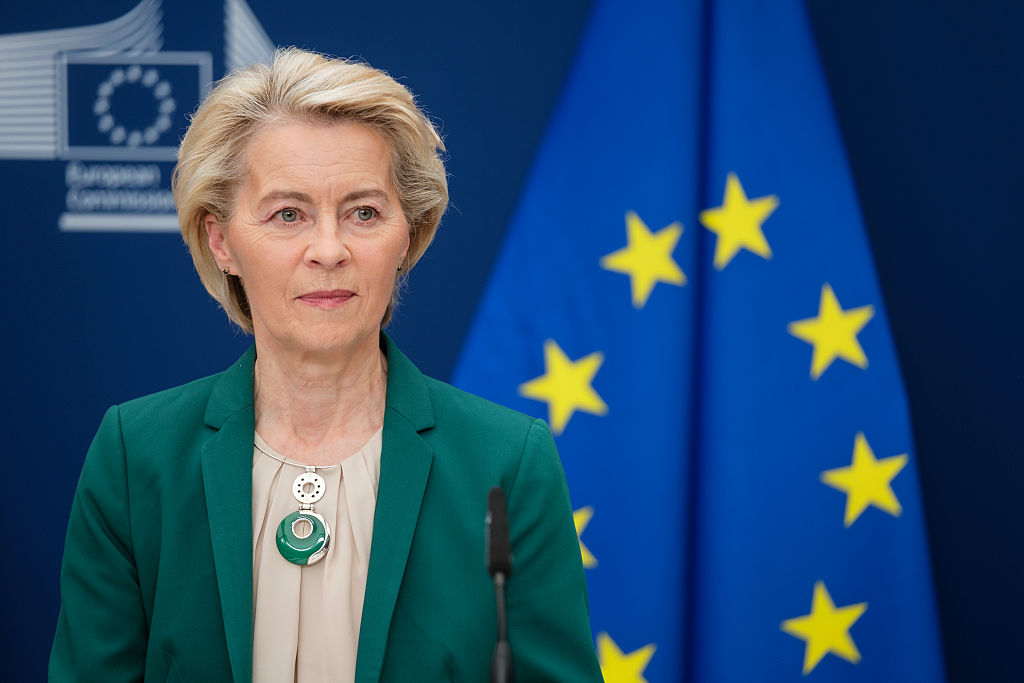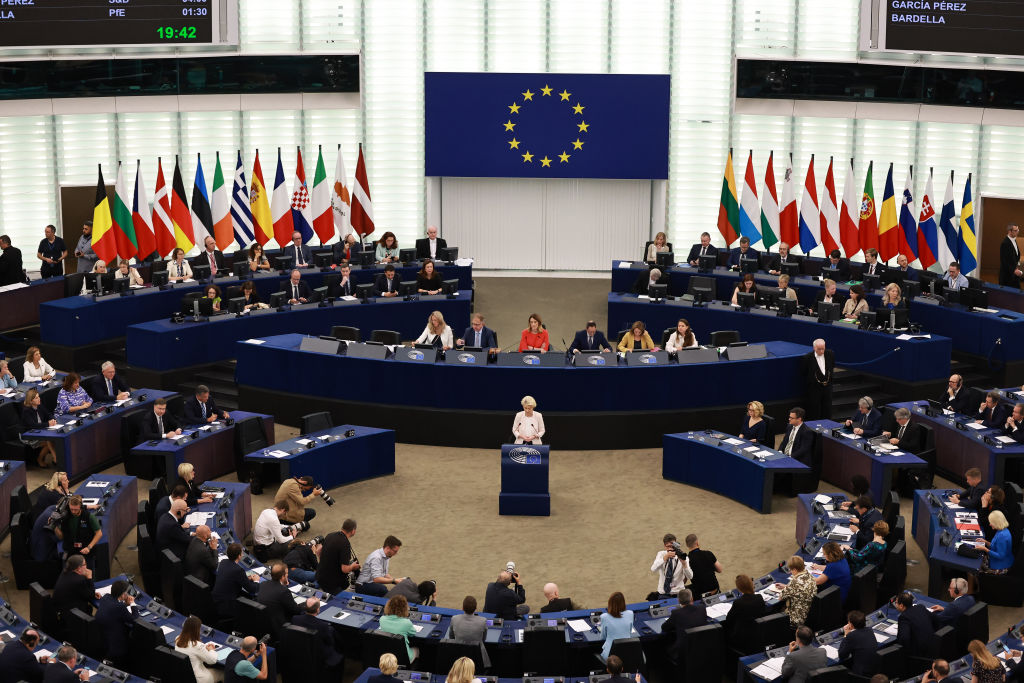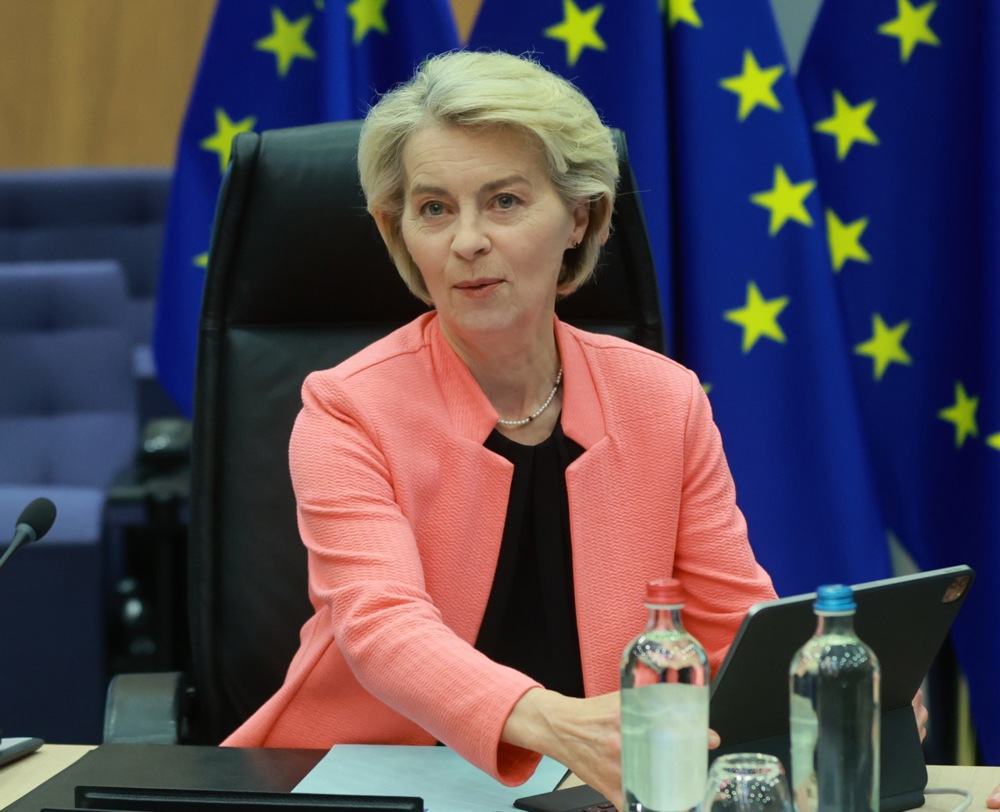Gheorghe Piperea, the Romanian MEP behind the motion of no-confidence against European Commission President Ursula von der Leyen, has threatened to bring her to court over her alleged “false accusations” regarding Russian backing.
According to Piperea, von der Leyen allegedly slandered him by tying him to Moscow without any proof. He said in an open letter to the EC that he would bring the body to the Court of Justice of the European Union for damages.
During the parliamentary debate on the no-confidence vote on July 7, Von der Leyen mostly avoided the criticism of those opposing her. She did, though, go on the counter-offensive against what she called political “extremists”.
Rather than addressing the controversial, and still hidden, messages between her and Pfizer CEO Bourla, Von der Leyen called the MEPs opposing her “anti-vaxxers” and “Putin-apologists”.
These accusations were then picked up by EU-funded fact-checkers and “disinformation experts”, who wrote a confidential report in mid-July on how “a known Russian disinformation network” and Kremlin operatives made use of the motion against von der Leyen to attack her and the EU.
#vonderLeyen #Pfizergate#gheorghepiperea#virginiejoron pic.twitter.com/XmjFQ4zZqs
— Gheorghe Piperea (@GPiperea) July 23, 2025
Pipera accused von der Leyen of spouting “unfounded claims” and noted they were repeated by numerous publications.
He also questioned the “supposedly independent and impartial” studies by the disinformation companies Debunk and Check First, noting they received “direct funding from Brussels through various projects”.
Pipera pointed out that the European Court of Auditors wrote an official report, revealed in May, confirming accusations of alleged maladministration and document concealment concerning the €35 billion Pfizer-deal and highlighted what it called the EC’s lack of transparency.
He said the Court of Auditors was a better source to work with than the “so-called official media outlets and, even more concerning, anonymous ‘fact checkers'” who received “hundreds of millions of euros each year from public EU funds”.
According to Pipera: “It is no coincidence that these entities produce only positive coverage for the European Commission and its leadership while negatively labelling any critical or dissenting opinions regarding its policies.”
The Romanian MEP said it should come as no surprise that Russians pushed negative opinions critical of the EU and von der Leyen, given the hostile relationships, but added that “by merging the individual with the institution”, she was “imitating Soviet practices”.
He said the Russian press was negative about her long before he even conceived the idea of the no-confidence motion and that he based it on the ruling of the Court of Justice, initiated by a New York Times journalist. He insisted there was no connection between the motion and Moscow.
He also said he was disappointed at the reaction of the EC, which, he claimed, “has resorted to factless [sic] accusations, insults and falsehoods, all based on conspiracy theories funded with European public money”.
Piperea formally requested von der Leyen to provide “definite proof that the motion is backed by the regime in Moscow”.
“Should no such evidence exist, I ask that you officially apologise — to me personally, to the 79 Members of the European Parliament who co-signed the motion and to the 95 MEPs who voted in favour,” he said.
He added that she should also publicly apologise for allegedly misleading all EU citizens.
If she did not reply within seven days, Pipera said he would bring the EC, including von der Leyen and her spokesperson, to court for damages.
Reacting to Brussels Signal, an EC spokesperson said: “As per usual, we have no comments on individual tweets.”
The spokesperson added a “more general comment on the matter of Russian disinfo”, which stated: “This is another reminder that actors proven to be closely associated with Russian State propaganda continue their attempts to polarise and weaken the European Union.
“They are opportunistically exploiting political events or discussions in the EU, to distort the political debate, spread conspiracy theories or discredit European politicians.
“The free and independent press in Europe, as well as fact-checkers and researchers, have an important role to play for advancing the understanding of the issue.”
In the European Parliament on July 7, von der Leyen told Piperea: “It’s taken out of the oldest playbook of extremists: Polarising society and eroding trust in democracy with false claims of election meddling and attempting to rewrite the history of how successfully Europe overcame the global pandemic together.
“There is a choice here: we can follow Mr Piperea down his world of conspiracies and of alleged sinister plots by what he calls ‘Brussels,’ or we can clearly call this out for what it is: another crude attempt to drive a wedge between our institutions, between the pro-European, pro-democratic forces of this House. And we can never let this happen.”
Von der Leyen said her opponents were backed by the enemies of Europe: “We have entered into an age of struggle between democracy and illiberalism … supported by the puppet masters in Russia and elsewhere.”
In late June, Piperea, a member of the European Conservatives and Reformists group in the EP, gathered enough signatures to table the motion of no-confidence. He accused the EC President of demonstrating a “pattern of institutional overreach, democratic disregard, and erosion of public trust in the Union’s governance”.
The trigger for his actions was the European Court of Justice’s ruling that the EC breached fundamental EU legal principles by withholding communications between von der Leyen and Pfizer’s CEO in what is known as “Pfizergate”.
A la rescousse de von der Leyen pour dénigrer la motion de censure, donc allons plus loin dans la théorie de “c’est Moscou”.
➡️#Pfizergate : von der Leyen a été critiquée et condamnée par la médiatrice européenne, par la cour des comptes et même par la cour de justice de l’UE… https://t.co/9RBPsw3PHi pic.twitter.com/KSB5yMBjit
— Virginie Joron (@v_joron) July 22, 2025





